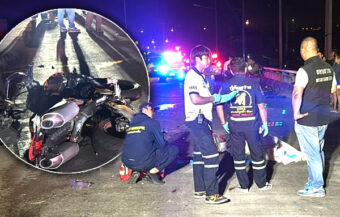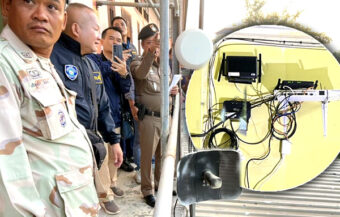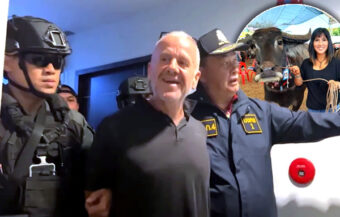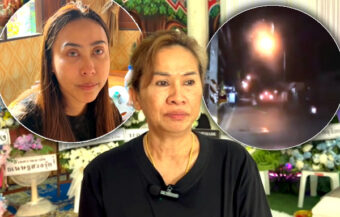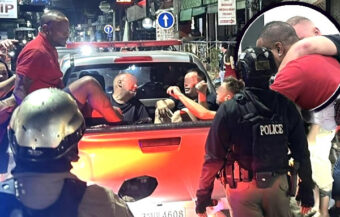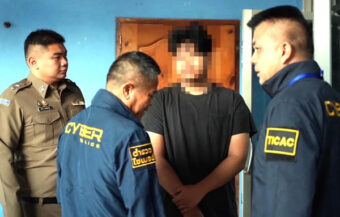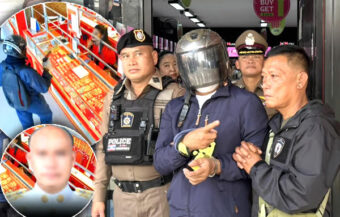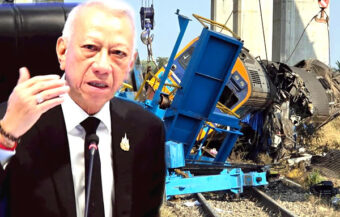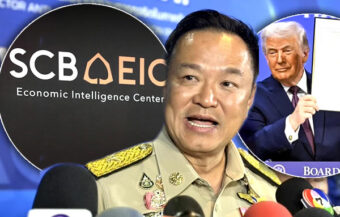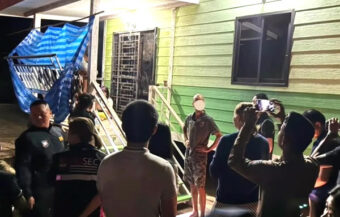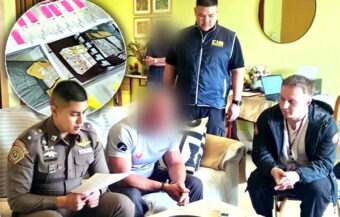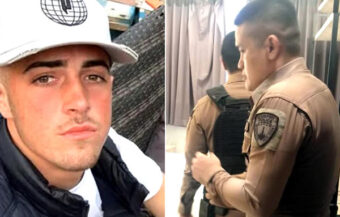Bhumjaithai Party leaders, including Deputy PM Anutin, are under investigation by the Election Commission over alleged Senate vote rigging involving 138 senators. The probe could lead to a major political and constitutional crisis in Thailand if charges proceed to court.
The leadership of the Bhumjaithai Party has been summoned by the Election Commission in connection with charges linked to the ongoing Senate collusion case. A top-level committee of the Commission is investigating an alleged scheme that led to the election of 138 senators in last year’s Senate vote. These senators are reportedly aligned with the Bhumjaithai Party. The Election Commission’s committee is working with evidence provided by the Department of Special Investigation (DSI), which launched a criminal probe in September 2024. This inquiry marks a significant escalation and serves as a precursor to potential legal action under the organic law governing elections. This is the first time the party and its leadership have been formally implicated in the case. If the charges under investigation are ultimately referred to the court, it could plunge Thailand into both a political and constitutional crisis.
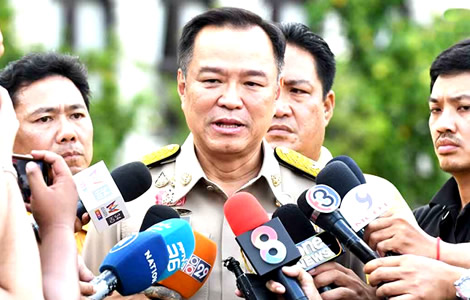
Deputy Prime Minister and Interior Minister Anutin Charnvirakul confirmed on Monday that he is under official investigation. The Election Commission (EC) is probing his alleged involvement in irregularities during the Senate selection process.
At least 16 individuals, mostly senior Bhumjaithai Party figures, have received summonses. These include Anutin himself, several party executives, and political heavyweight Newin Chidchob.
The EC’s 26th Investigation Committee is leading the probe. It suspects unlawful coordination or collusion during the Senate selection process.
Anutin and others summoned by the Election Commission over alleged Senate election scheme
Anutin, who also heads the Bhumjaithai Party, said he received his summons last week. It arrived at his private residence in Buriram Province.
The summons accuses him of undermining democracy by allegedly attempting to influence the selection of senators. Despite the charges, Anutin insists he has done nothing wrong. Speaking to reporters at Government House, he said he would fully cooperate with the EC. “I am prepared to explain everything,” he stated confidently.
Moreover, he emphasized he is not a legal expert. “I’m an engineer, not a lawyer,” he said. “So I’ve asked my legal team for help.” According to him, the investigation includes Newin Chidchob, president of Buriram United Football Club. Newin is widely viewed as Bhumjaithai’s political kingmaker.
In addition, several top party officials are also involved. These include Deputy Party Leader Surasak Pancharoenworakul, Secretary-General Chaichana Chidchob and Deputy House Speaker Paradorn Prisananantakul.
Anutin acknowledges legal summons for party leaders including Newin amid growing Senate collusion probe
Although he refrained from naming all individuals, Anutin confirmed that party executives had received EC summonses as well. “We’re not hiding anything,” he said.
When asked about the political motivations behind the investigation, Anutin gave a measured response. “In Thai politics, almost anything can be political,” he said. “But we will face it with facts.”
Crucially, he noted that he had already issued strict orders within his party. These orders barred Bhumjaithai members from participating in or influencing the Senate selection process.
“Our internal communication was clear,” Anutin said. “We instructed all MPs and executives not to get involved.”
Furthermore, Anutin confirmed he had spoken to Prime Minister Paethongtarn Shinawatra earlier in the day. Their conversation occurred during a scheduled meeting at Government House.
Anutin remarked that the PM shook her head as he told her the news. In addition, she expressed a desire that the work of the government not be disrupted.
Anutin reveals party orders barring involvement in Senate selection following a 90 minutes meeting with PM
Significantly, the Prime Minister did not mention any plans for a cabinet reshuffle. “The meeting focused on administrative matters,” Anutin added.
They discussed provincial governance and drug suppression campaigns. “We talked about ‘white villages’ and boosting anti-drug policy,” he said.
Therefore, Anutin dismissed reshuffle rumors as baseless. “She didn’t say a word about cabinet changes,” he insisted.
When asked if he felt secure as Interior Minister, Anutin was direct. “Yes. I believe so,” he replied.
Nevertheless, reporters questioned whether Pheu Thai might attempt to reclaim the Interior Ministry. In response, Anutin was firm.
“Cabinet positions are coalition matters,” he said. “They require consensus between party leaders—not unilateral decisions.”
He added that as long as Bhumjaithai remains part of the coalition, its cabinet quota must be honoured. “Only party leaders can negotiate such changes,” he emphasized.
Anutin dismisses cabinet reshuffle rumours and stresses coalition consensus on ministry positions
Anutin also dismissed speculation that Bhumjaithai’s internal meeting on Monday involved a secret reshuffle plan. “The agenda was public and routine,” he said. “We focused on the 2026 fiscal budget.”
Moreover, he downplayed any risk to the government’s stability. “This won’t disrupt the coalition,” he assured reporters. “Work continues as usual.”
He addressed personal concerns as well. “I know only a few senators personally,” Anutin said. “There’s no special relationship.”
He named General Kriangkrai Srirak and Mr. Wuttichai Kalyanamitra as casual acquaintances. Both are alumni of executive training programs. General Kriangkrai is the Vice President of the upper house. Anutin also admitted knowing Mr. Mongkol Surasajja, the Senate President who was previously a senior official in Buriram province.
“Knowing someone doesn’t equal misconduct,” Anutin stressed. “I’ll defend myself with the truth.”
Importantly, he clarified that receiving a summons does not mean being declared guilty. “Anyone can be accused,” he noted. “We respond with facts, not panic.”
Anutin names acquaintances among senators and insists summons doesn’t equal guilt amid probe
He expressed frustration at being accused of damaging democracy. “I’ve worked under the democratic system all along,” he said. “These accusations are completely at odds with my actions.”
Still, he said he respected the EC’s role and would comply with all legal procedures. “They’re doing their job. I’ll do mine,” he said.
Meanwhile, former Prime Minister Thaksin Shinawatra had reportedly commented that the Interior Ministry should return to Pheu Thai. When asked about this, Anutin shrugged it off.
“Thaksin is speaking in a personal capacity,” he said. “Only the Prime Minister has executive authority.”
He said his relationship with Prime Minister Paethongtarn remains professional and cordial. “She reaches out when needed,” he said. “There’s no tension.”
Asked about any political friction with other coalition members, Anutin laughed. “If anyone has a problem, they should clear their mind,” he said.
Anutin rejects accusations of harming democracy and downplays friction with coalition members
Finally, he denied that any secret political meetings were taking place behind the scenes. “There’s no mystery here,” he said. “We’re focused on real governance.”
The list of people summoned includes many high-ranking party members. All of them are expected to present evidence and respond to the allegations. The EC will then determine whether formal charges are appropriate.
For now, Anutin remains defiant and composed. “We’re not stumbling,” he said. “We’ve done nothing wrong. Let the facts speak.”
Anutin laughs off Senate probe and effort to link Bhumjaithai to an alleged plot to rig the upper house
Government in peril over the coming weeks with Constitutional Court petition over Senate collusion conspiracy
Justice Minister suspended from roles linked to the expanding Senate criminal investigation by the DSI
Shocking and real evidence of a massive Senate election collusion campaign. 1,200 people being probed by DSI
Nonetheless, the stakes here are high. Subsequently, the Election Commission must weigh the evidence collected and assessed by the investigating committee. It must then decide whether the matter and any implicated person should be referred to the Constitutional Court under the country’s electoral laws.
Certainly, if that eventually happens, it will cause a political earthquake in Thailand in addition to a constitutional crisis.

